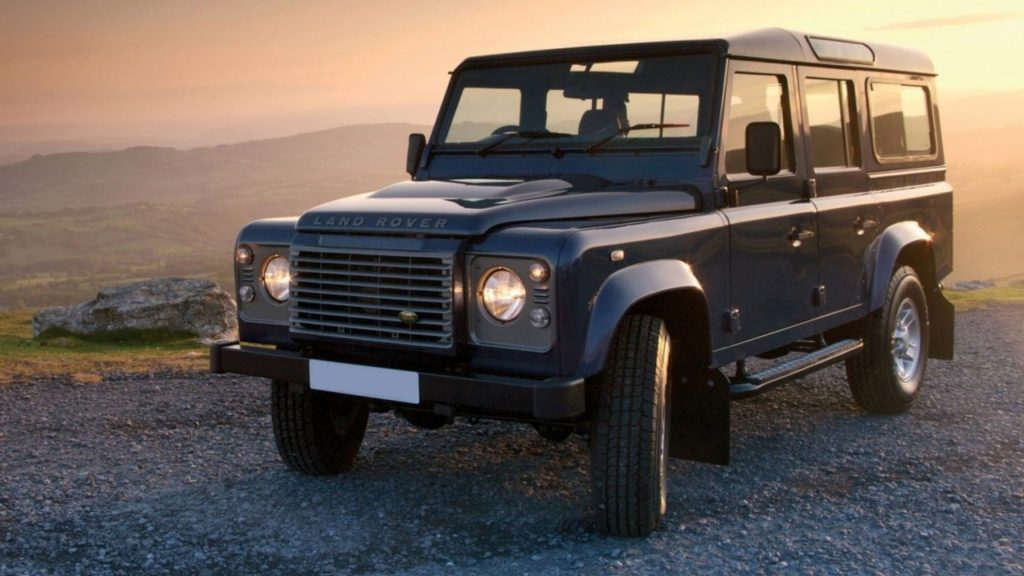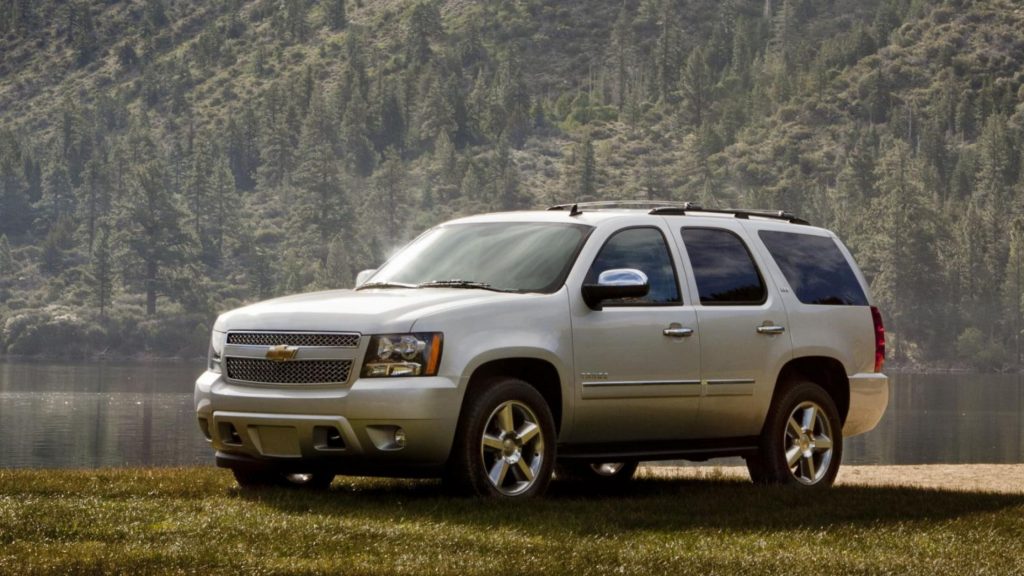Introduction
When it comes to braving the wild outdoors, you need a vehicle that can handle even the toughest of conditions. The Jeep Wrangler and Land Rover are two well-known 4x4s, both built to tackle harsh terrain while delivering comfort and style. Let’s compare which of these is better for overlanding.
The Jeep Wrangler has two engine options – a V6 and a mild-hybrid 4-cylinder. On the other hand, the Land Rover offers turbocharged engines for extra power. When it comes to conquering rocky ground or steep slopes, the Jeep Wrangler outperforms its rival.
The Land Rover has luxurious materials and tech features for modern-day SUVs. In contrast, the Jeep Wrangler is all about comfort and ruggedness. According to Caranddriver.com, the Rubicon 392 is a “real rocketship on wheels”. If speed is your priority, then the Rubicon should be your go-to.
In the end, it all depends on personal preferences. No one knows what you want better than you!
Features of Overlanding
To understand the features of overlanding with Jeep Wrangler vs. Land Rover, this section focuses on the important aspects that you should be aware of. Understanding Overlanding is crucial before you can choose the right vehicle for the task. In this section, we will explore the two sub-sections to help you determine which vehicle is the best fit for your needs.
Understanding Overlanding
Overlanding is a form of travel that involves long-distance, off-road journeys. It’s become popular for those seeking adventure, exploration, relaxation, and even spiritual enlightenment.
But what makes it unique? One defining factor is self-sufficiency – overlanders must take care of themselves without outside help. They bring their own food, water, shelter, and medical supplies. It also means going to remote locations and navigating tricky terrain.
Another feature is connecting with nature without modern-day interruptions. This allows people to truly appreciate their surroundings, unlike conventional road trips.
The roots of overlanding can be traced back to early explorers who journeyed with minimal gear for months at a time. One example is Geoffrey Kent’s car expedition from Nairobi, which led to the founding of ‘Abercrombie & Kent’, a luxury adventure travel company.
For those wanting to explore wild unknown territories away from tourist paths, understanding Overlanding is key. After all, if you’re living in your vehicle, you may as well make sure it’s a comfortable ride.
Choosing the Right Vehicle for Overlanding
Are you an overlander wanting the perfect ride for any terrain? You need to do your homework and ponder carefully. Here’s what to look for when selecting your ride of choice.
Features:
- 4×4 Capability – All-wheel drive system with low range gearing for tricky off-road trails.
- Durability – Heavy-duty chassis, reinforced body panels and strong suspension components for tough conditions.
- Storage Capacity – Enough space for essential gear, like food, water, camping equipment, tools and spare parts.
- Fuel Efficiency – The capacity to go long distances without refueling for remote locations.
- Safety Features – Reliable braking system, airbags, stability control systems and tire pressure monitoring systems are a must.
Each overlander has different preferences for their ideal vehicle. But the perfect car has certain characteristics that all great overland adventurers require – the capability to handle unpredictable obstacles on wild terrains or tough road conditions.Every trip shows a unique view on how to pick your perfect partner for overlanding.
Georgina and Laurent of ‘The Vagabroads‘ found Swaziland to be the place where their truck chose them. Off-roading in a Jeep Wrangler is like going to the gym – it’s tough, dirty and you feel amazing afterwards.
Jeep Wrangler for Overlanding
To optimize the experience of overland travel with the Jeep Wrangler, it is important to take note of its unique features and consider both its pros and cons. This section will provide you with the necessary information on the features of the Jeep Wrangler for Overlanding, as well as its pros and cons in this type of travel.
Features of Jeep Wrangler for Overlanding
For an overlanding trip, you need a vehicle that can cope with tough terrain and long distances. The Jeep Wrangler has been a top pick for overlanders thanks to its sturdiness, adaptability, and off-road skills. Here are some features that make it ideal for overlanding:
- 4×4 Capability: Standard four-wheel drive makes the Jeep Wrangler great for tackling rough surfaces and tricky terrain.
- Removable Doors and Roof: Take the doors and roof off for an open-air journey.
- Ample Storage Space: Store camping gear, food, water, and clothing without compromising on passenger comfort.
- Rock-Trac Transfer Case: The Rock-Trac transfer case and Dana 44 axles give more control and torque on bumpy surfaces.
As well as those great features, the Jeep Wrangler also offers heated seats and entertainment systems for extra comfort on long trips.
If you’re an overlander searching for a vehicle that can handle harsh environments while providing comfort and versatility, the Jeep Wrangler is the one for you. It’s robust, capable, and has all the practical features you need for a successful overlanding journey.
Pros and Cons of Jeep Wrangler for Overlanding

Jeep Wrangler is a top choice for Overlanding enthusiasts, due to its impressive off-road capabilities. It’s essential to know the pros and cons of owning this vehicle before taking it on an Overlanding trip.
Pros include:
- Outstanding off-road performance
- Versatile platform for modifications
- Good resale value
- Durable build quality
- Lots of knowledge and resources available online
Cons:
- Poor gas mileage
- Noisy ride on highways
- Pricey base models
- Tight cabin space
- Limited color choices
An owner of a Jeep Wrangler once drove through a rocky trail in Colorado, and accidentally drove into a boulder field. Despite bumping and crashing sounds inside, his Jeep got him out unscathed and undamaged. This speaks to the model’s sturdiness in some of the toughest conditions ever faced during an overlanding trip.
Land Rovers may be costly and heart-breaking, but they sure look good while doing it!
Land Rover for Overlanding

To fully experience an Overlanding adventure with confidence and comfort, consider Land Rover. With its features dedicated to Overlanding, like durable suspension, high ground clearance, and all-terrain capability, Land Rover is a reliable option. In this section, we’ll quickly introduce two sub-sections – Features of Land Rover for Overlanding, and Pros and Cons of Land Rover in Overlanding.
Features of Land Rover for Overlanding
For adventurers, the Land Rover offers great features for Overlanding. Here’s why:
- All-Terrain Capability: Advanced suspension & 4-wheel drive.
- Rugged Exterior: Boxy shape, high ground clearance, strong panels.
- Engine Power: Sturdy engine and efficient.
- Spacious Interior: Ample space for passengers & cargo.
- Safety: Airbags, traction control, hill start assist.
- Adaptability: Customizable performance in any terrain.
Plus, every part of a Land Rover is tested for optimal performance. Skid plates under the car’s body keep it running in rough terrains. The Land Rover’s history is incredible – British Army needed lightweight vehicles for off-road in the 1950s-60s. This led to modern-day Land Rovers – perfect for Overlanding.
With a Land Rover, conquer any terrain – except the mechanic’s bill.
Pros and Cons of Land Rover in Overlanding
Land Rover is a top contender for Overlanding, but consider its pros and cons before hitting the road. Highlights include:
| Pros | Cons |
| Durable design | Expensive maintenance |
| Excellent off-roading | Poor fuel economy |
| Spacious interior | Hefty initial cost |
Land Rover offers special features like a ladder chassis, strong suspension, and a drivetrain for rough terrains and long trips. But it’s pricey to maintain.
Know that all Land Rovers are not created equal. Models vary from luxury SUVs to hardcore off-roaders. Navigating difficult routes can be both thrilling and daunting.
If you plan to explore the wild with an unforgettable experience, Land Rover is a great option. Though the purchase process may seem intimidating, investing in this vehicle could lead to incredible journeys.
As they say, adventure awaits – don’t miss out! Why not get both a Jeep Wrangler and a Land Rover and have a rivalry in your own garage?
Comparison of Jeep Wrangler and Land Rover for Overlanding
To make an informed decision on whether to choose Jeep Wrangler or Land Rover for Overlanding, explore the comparison of these two vehicles with regard to their performance in off-roading, comfort and functionality, and durability and maintenance. These sub-sections will provide you a clear understanding of the particular benefits each vehicle offers for your next off-roading adventure.
Performance in Off-Roading
Off-roading needs a car that can handle rough terrain easily. The performance of a car here is essential for any overland journey. We must compare the Jeep Wrangler and Land Rover by their capabilities in off-roading.
The table reveals big differences between the two cars for factors like ground clearance, approach angle, departure angle, breakover angle, and water fording depth. The Jeep Wrangler has better clearance with 41.4 degrees approach angle, whereas the Land Rover’s angle is 33 degrees.
It is clear that the Jeep Wrangler is a better choice for ‘off-road’ than the Land Rover and it is more affordable too. For those who want to conquer tough terrains/trails, selecting the right vehicle makes all the difference.
Pick as per your needs: luxury or something rugged and functional for off-road purposes – remember to take safety measures before you venture out of urban areas!
Choose with care! You can sleep in a Jeep Wrangler or Land Rover and get great views in the morning (plus, perhaps, a sore back).
Comfort and Functionality
When it comes to overlanding, comfort and functionality are key. The Jeep Wrangler and Land Rover are both great options. But what sets them apart?
- Jeep Wrangler has a tight ride and limited storage, versus Land Rover’s roomy cabin and cargo capacity.
- Both vehicles have adjustable seats and columns, though the Land Rover’s power tilt-and-telescoping feature adds more convenience.
- The Jeep has manually adjustable side mirrors, while the Land Rover offers power-folding ones, which make maneuvering tight spaces easier.
- The Wrangler’s open-air design provides a unique experience, yet the Land Rover’s climate control system helps regulate extreme temperatures.
Also, the Land Rover has interior materials and trim levels for added luxury. But, the Jeep is compact, making it easier to handle rugged terrains. Consider these points when finding the right fit.
Pro Tip: Test drive both cars before making a decision. If you need a vehicle that can go anywhere and look good, the Jeep Wrangler and Land Rover will do the job!
Durability and Maintenance
We’ve got a table to compare the durability and maintenance of both vehicles:
| Vehicle | Durability | Maintenance |
|---|---|---|
| Jeep Wrangler | Body-on-Frame | Easily Replaceable Parts |
| Land Rover | Monocoque Construction | Regular Maintenance |
The body-on-frame construction on the Wrangler may be strong but it’s not as comfy as the Land Rover. The Land Rover’s electronics make them more prone to expensive breakdowns than the Wrangler.
Jeeps were first made for the military in WWII, before civilians used them for Overlanding.
Picking the right vehicle for Overlanding is like choosing between your two exes – they both have their pros, but it’s better to go solo.
Conclusion
Jeep Wrangler and Land Rover have been in a fierce debate about overlanding for a while. Each has pros and cons, and a devout following.
Firstly, Jeep Wrangler is known for its off-road capability and affordability. Its tough exterior and many aftermarket parts make it an ideal budget-friendly option for venturing off the beaten path. On the other hand, Land Rover stands out for its luxury and sophistication, with features like Terrain Response 2 that adjusts power depending on the terrain.
Jeep Wrangler also has a better fuel efficiency than Land Rover. Its smaller size and light design make it a good option for longer trips, as it saves time spent refueling.
And finally, when it comes to reliability, Jeep Wranglers have less electrical problems than Land Rovers over time.
In conclusion, Overland Journal’s comparison review states, “Land Rovers have more refinement, whereas Jeeps offer more customization.” It is up to drivers to decide which vehicle fits their own preferences best.
Frequently Asked Questions
Q: What is overlanding?
A: Overlanding is an adventure travel experience where a person or group travels through remote and wild areas in a well-equipped vehicle, such as a Jeep Wrangler or a Land Rover, for an extended period of time.
Q: Which is better for overlanding, a Jeep Wrangler or a Land Rover?
A: Both the Jeep Wrangler and Land Rover are excellent for overlanding depending on your needs and preferences. The Wrangler is more affordable and has a more rugged and dependable design, while the Land Rover offers more luxurious amenities and off-road capabilities.
Q: Which is more reliable, a Jeep Wrangler or a Land Rover?
A: In general, the Jeep Wrangler is more reliable than the Land Rover. It has a simpler design with fewer electronic features, significantly lower repair costs, and a more robust aftermarket support network to keep it running for years.
Q: Which has better off-road capabilities, a Jeep Wrangler or a Land Rover?
A: Both the Jeep Wrangler and Land Rover are excellent off-roaders, but the Wrangler has a more focused and capable design for extreme terrains. It offers more specialized configurations, such as the Rubicon, which includes heavy-duty axles, locking differentials, and rock rails for superior off-road performance.
Q: Which is more expensive to maintain, a Jeep Wrangler or a Land Rover?
A: Land Rovers are generally more expensive to maintain than Jeep Wranglers due to their complexity and electronic features. Land Rover owners should expect higher repair costs and longer wait times for parts and service due to their limited aftermarket support network.
Q: Which is more comfortable for overlanding, a Jeep Wrangler or a Land Rover?
A: In terms of comfort and luxury amenities, the Land Rover is the clear winner. It offers a quieter ride, spacious and plush interiors, and advanced safety features such as adaptive cruise control, forward collision warning, and park assist technology. However, the Jeep Wrangler is also comfortable enough for long trips and offers superior visibility and open-air experiences.
- Tips and tricks For Setting Up Camp Like a Pro - September 11, 2023
- The Best Multi-Tools for Overlanding Adventures - August 25, 2023
- Off-Road Navigation Tips for Overlanders - August 13, 2023



